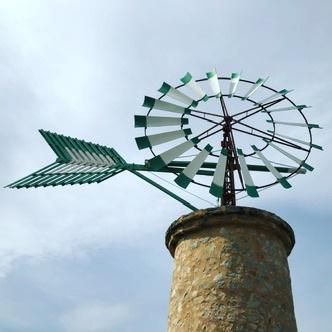In what ways do the Balearic Museum of Natural Sciences and the botanical garden contribute to local conservation efforts?
Similar Topics
balearic museum
natural sciences
local conservation
endemic species
biodiversity education
botanical garden
native plant preservation
habitat restoration
The Balearic Museum of Natural Sciences plays a vital role in local conservation efforts by serving as an educational hub where residents and visitors can learn about the unique flora and fauna of the Balearic Islands. Through its carefully curated exhibits, the museum highlights the importance of preserving endemic species and habitats that are unique to this Mediterranean region. It offers detailed insights into biodiversity, ecosystem dynamics, and the environmental challenges faced by the islands, thereby fostering a greater appreciation and awareness among the public. The museum’s research activities often involve studying native species, which aids in monitoring their populations and health, ultimately informing conservation strategies.
Complementing the museum’s work, the botanical garden acts as a living repository for the region’s native plant species, some of which are rare or threatened. It provides a sanctuary where local plants are cultivated and studied, contributing directly to efforts aimed at preventing their extinction. The garden also serves as an outdoor classroom, where visitors can engage with the natural environment in an immersive way, gaining a deeper understanding of plant ecology and the critical role vegetation plays in sustaining island ecosystems. Through conservation programs and plant propagation projects, the botanical garden supports the reintroduction and restoration of native vegetation in degraded areas, strengthening habitat resilience.
Together, the museum and botanical garden form an integrated conservation network that combines education, research, and habitat preservation. Their collaborative approach enhances community involvement through workshops, guided tours, and volunteer opportunities, empowering locals to participate in conservation activities. By promoting scientific knowledge and ecological stewardship, these institutions contribute significantly to protecting the unique biodiversity of the Balearic Islands, ensuring that future generations can continue to experience its natural heritage. This dual emphasis on learning and hands-on conservation exemplifies a comprehensive strategy that benefits both the environment and the community.
Complementing the museum’s work, the botanical garden acts as a living repository for the region’s native plant species, some of which are rare or threatened. It provides a sanctuary where local plants are cultivated and studied, contributing directly to efforts aimed at preventing their extinction. The garden also serves as an outdoor classroom, where visitors can engage with the natural environment in an immersive way, gaining a deeper understanding of plant ecology and the critical role vegetation plays in sustaining island ecosystems. Through conservation programs and plant propagation projects, the botanical garden supports the reintroduction and restoration of native vegetation in degraded areas, strengthening habitat resilience.
Together, the museum and botanical garden form an integrated conservation network that combines education, research, and habitat preservation. Their collaborative approach enhances community involvement through workshops, guided tours, and volunteer opportunities, empowering locals to participate in conservation activities. By promoting scientific knowledge and ecological stewardship, these institutions contribute significantly to protecting the unique biodiversity of the Balearic Islands, ensuring that future generations can continue to experience its natural heritage. This dual emphasis on learning and hands-on conservation exemplifies a comprehensive strategy that benefits both the environment and the community.
🧩 Related Questions
Related Question
What cultural significance do traditional names hold in Mallorca?
Related Question
How can tourists support more ethical and sustainable pig farming initiatives when visiting Mallorca?
Related Question
How did the COVID-19 pandemic contribute to the decision to abolish the eco-tax in Mallorca?
